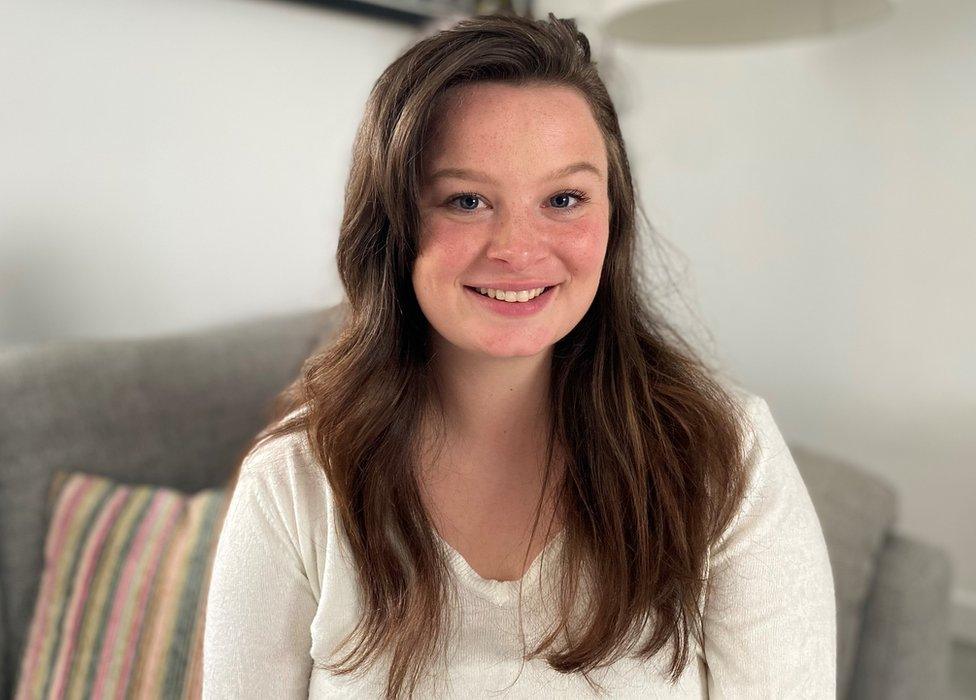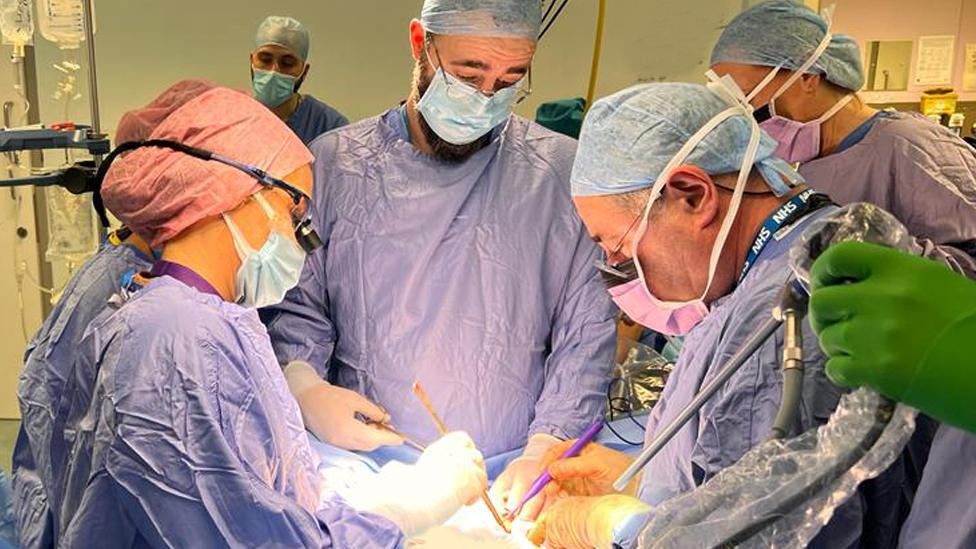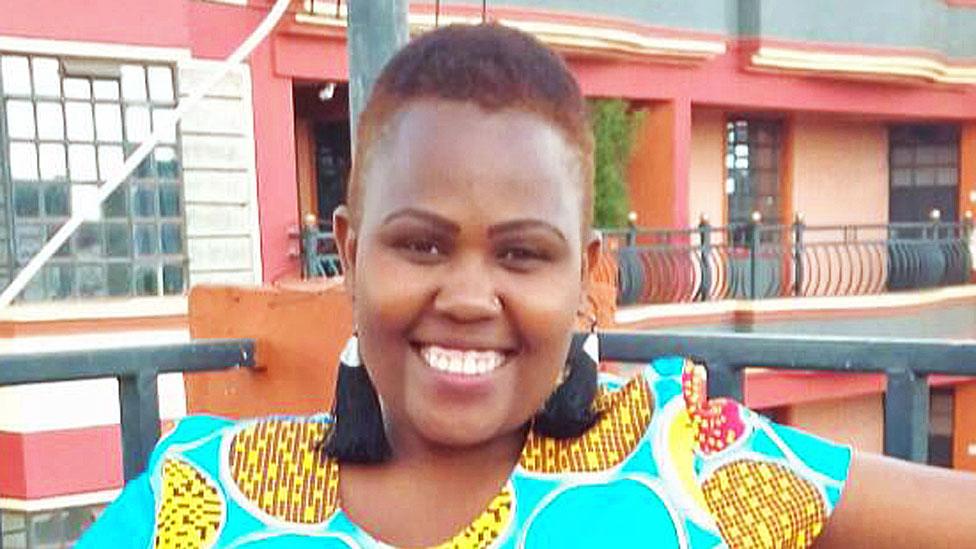Woman without womb accuses NHS of fertility treatment discrimination
- Published
Taelor Shand feels the current guidelines put pressure on relationships.
A woman who was born without a womb has described current fertility treatment guidelines as "full of inequality and discrimination" after she was unable to have her eggs frozen through the NHS.
Taelor Shand, 27, has Mayer-Rokitansky-Küster-Hauser Syndrome (MRKH).
She has had a privately-funded egg collection procedure to facilitate future IVF (In Vitro Fertilisation).
The Scottish government said guidance to standardise access to fertility preservation was expected next year.
It is believed about one in 5,000 women are living with MRKH, which affects the female reproductive system.
MRKH is not included in NHS Scotland's criteria for fertility preservation.
Some individuals do qualify for fertility preservation through the health service, if they are about to receive treatment for cancer or are preparing to medically change their gender.
The charity Fertility Network UK said the criteria should be widened to include more medical conditions.
Ms Shand, from Aberdeenshire, went through the egg collection procedure earlier this month which cost about £7,000. In future these could be transferred into the womb of a surrogate.
She was diagnosed with MRKH at the age of 14 when she was receiving treatment for a separate medical issue.
Ms Shand said she was first rejected for fertility preservation when she was 25.
She was approached by a consultant following treatment for another matter, but because she was neither ready or fully eligible for IVF she was rejected.
She believes a lack of knowledge on MRKH in the health service has led to inequalities.
Mayer-Rokitansky-Küster-Hauser
Characterisedby absence of the vagina, cervix and the uterus
Affectsone in 5,000 women
Type 1refers to the absence of reproductive organs
Type 2refers to the absence of, or abnormality with, a kidney
Usually discoveredduring puberty when menstruation does not start

"I'm not surprised [by the rejections], the amount of GPs I've gone to who I have watched Google my condition in front of me," she said.
"There isn't that awareness among GPs or consultants about MRKH in general, so I don't expect the people who are making decisions about funding to know either.
"I've lost confidence in the NHS's ability to make fair and consistent decisions about funding.
"While they're reviewing [the guidance] and they're looking at publishing it they should speak to us.
"The current guidelines are full of inequality and discrimination".
She believes the current criteria, for fertility preservation and IVF, can put personal relationships under unnecessary strain.
"As women we're constantly being told to 'watch your body clock', it puts pressure on those who have MRKH and other people who have conditions where surrogacy is needed," Ms Shand said.
"It puts pressure on relationships, you think 'we need to move in together' and 'we need to have something signed to say we have lived together for two years'."

Taelor Shand, from Aberdeenshire, paid thousands of pounds for her egg collection procedure
Sarah Lindores-Williams, Fertility Network UK's Scotland branch co-ordinator, said: "The current guidelines for fertility preservation are available for patients of childbearing age who are going through cancer treatment, and also patients who are transgender who may be taking medications or going through surgeries that will have an impact in their future fertility.
"In Scotland we have that criteria. It's not the same across the rest of UK so we are ahead in that sense.
"However, we would say that the criteria does need to be reviewed.
"We have had contact from a lot of women with cases of endometriosis. In some instances they've had a hysterectomy to treat the condition but they were not offered fertility preservation before the surgery took place."
'Fire lit underneath me'
The Scottish government said: "A Scottish government group is working on guidance to standardise access to fertility preservation.
"The guidance is in its final stages of development and is expected to publish in early 2024."
The Human Fertilisation and Embryology Authority (HFEA) said it did not regulate the commissioning of IVF, or the cost of treatment across the UK.
"The funding of fertility treatment varies across the UK, and Scotland makes its own decisions on this," the HFEA said in a statement. "We are, however, concerned that patients have inconsistent access to NHS funded fertility treatment across the UK.
"The fertility sector is a unique area of healthcare in the UK as the majority of patients pay for treatment themselves. Fertility treatment can cost a lot and be physically and emotionally difficult."
Ms Shand said she was determined to see MRKH, and similar conditions affecting fertility, included in any updated NHS Scotland guidance.
"Living with MRKH is never something I've been quiet about.
"It's only one part of personality, it doesn't define me and I'm happy to talk about it.
"When I was knocked back the first time, I knew I was never going to go quietly about it. I've now got a collection of eggs that I got through self-funding, I'm now ready to talk about it.
"I've had a fire lit underneath me".
Related topics
- Published23 August 2023

- Published15 March 2020
